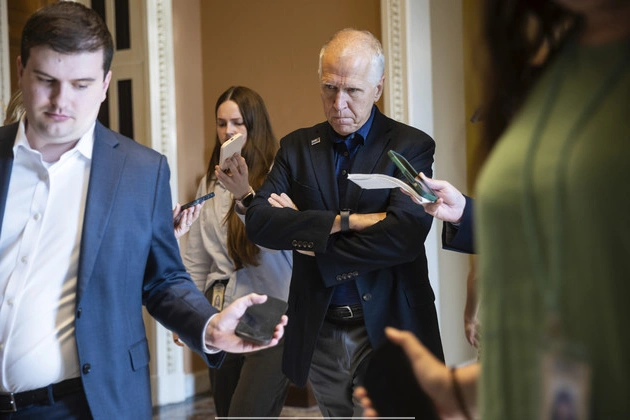
Senate Republicans are poised to address the recent House rollback of IRA tax credits that impact clean energy sources. The legislation passed by the House includes significant changes that could limit the ability of wind and solar industries to benefit from these credits, favoring the nuclear sector instead.
With the Senate being the final opportunity to revise these changes, industry experts are closely watching the upcoming discussions. Several Republican senators have expressed concerns about the extent of the rollbacks and are considering adjustments to ensure a balanced approach.
Senate Republicans’ Stance on the House Rollbacks
Sen. Thom Tillis from North Carolina, a member of the Finance Committee overseeing these credits, emphasized the need for revisions to the production and investment tax credits. He indicated that modifications are inevitable to address the current limitations.
Potential Changes on the Horizon
Key Republican senators, including Lisa Murkowski, John Curtis, and Jerry Moran, have signaled their willingness to reevaluate the House bill. While specific amendments have not been outlined yet, there is a consensus among these senators to reassess the proposed rollbacks.
Expectations in the Senate
Senate Republicans are expected to take a more moderate approach compared to the House version. They are likely to balance the interests of various energy sectors while ensuring the continuity of clean energy initiatives.
Industry observers anticipate a thorough review of the House bill in the Senate, with a focus on preserving essential clean energy credits. The inclusion of technologies like geothermal and nuclear is crucial for bipartisan support and sustainable energy development.
Challenges and Opportunities Ahead
While some Senate Republicans have voiced concerns about the House rollbacks, there is optimism that the Senate will address these issues effectively. Balancing the priorities of different energy sources and promoting job creation in the clean energy sector will be key considerations in the upcoming discussions.
The Senate’s role in moderating the IRA tax credit changes underscores the importance of bipartisan collaboration in shaping impactful energy policies. As the debate unfolds, stakeholders across the clean energy industry are closely monitoring the developments and advocating for a balanced approach that supports innovation and sustainability.











